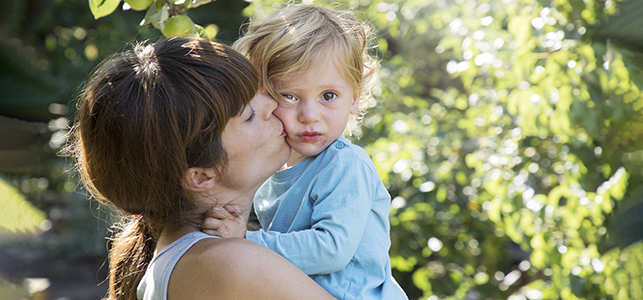
Sometimes the most enormous expressions of emotion come from the tiniest tots. We’re all born with innate emotions and it takes time and growth to learn to process them given individual temperament, home environment and cultural factors.
Dr. Michele Cosby, a licensed clinical psychologist at our Virginia Treatment Center for Children, explains how parents and caregivers can help our little ones learn to navigate their big feelings.
Help your child know it’s okay to feel their feelings. They’re human and all people have feelings. That said, little ones often don’t have the language to describe what they’re experiencing so their frustration comes out through behavior.
The first step is helping them learn to identify what they’re feeling and why. “It looks like you’re sad because you broke your toy." Name the feeling, acknowledge it, then help them learn to cope. Start with basic emotions like happy and sad and then add more as their communication skills grow. Make a habit of providing significant praise – or a "praise party” – when your child attempts to handle their big feelings in a healthy way.
Take a deep breath yourself! Most often, your kiddo is trying to communicate, not attempting to be difficult on purpose. Toddlers can feel our emotions, just like we can feel theirs. If we want calm from them, we need to try our best to stay calm ourselves.
Not only can toddlers feel our emotions, but they imitate our behaviors. As adults, it’s our responsibility to be aware of this and adjust accordingly.
Find the balance. Working through challenges together is the way kids will develop the skills needed to face similar situations in the future. It takes time and practice though. Provide validation of their feelings and support ways to express themselves appropriately.
As adults, we still sometimes have difficulty thinking logically when faced with challenging situations. It’s extremely difficult for a toddler, who hasn’t yet developed the ability to reason. Give them space to figure things out, but step in if behavior is dangerous to the child or others, or if you see they’re really struggling to handle it on their own.
Be sure to process the event together once the situation is calm again. Help your child grow awareness of what happened, how they felt, and potential alternatives to their response. Talk about what worked and ways to adjust to plan for next time.
By the age of 8 or 9, kids should be able to engage more in emotional regulation. This includes the ability to identify emotions and their triggers, along with ways to manage their emotions with support. You should see a noticeable increase in their ability to do so as they approach age 8.
Occasional outbursts by young kids are a normal part of cognitive development and maturation. Professional help may be needed if:
If you have concerns, your child’s pediatrician can offer insight and help determine if additional support would be beneficial.